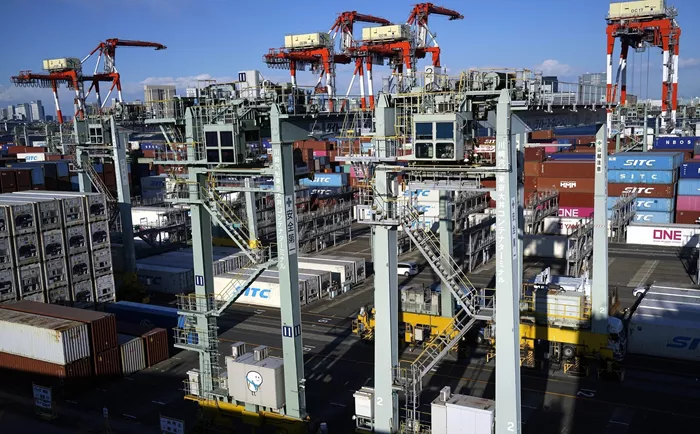Japan’s exports to the U.S. fell nearly 2% in April, reflecting the impact of tariffs imposed by President Donald Trump. This decline affected Japan’s overall trade performance, with exports rising just 2% year-on-year, down from 4% in March.
For the first time in three months, Japan recorded a trade deficit of 115.8 billion yen ($804 million), compared to a deficit of 504.7 billion yen a year earlier.
Imports from the U.S. dropped sharply by more than 11% in April, while total imports declined 2.2%. The stronger Japanese yen, which recently rose against the U.S. dollar (trading at about 144 yen to the dollar, down from 155 yen a year ago), further reduced the value of exports when converted to yen.
The tariffs have hit Japan’s key export sectors hard. The U.S. has imposed a 25% tariff on Japanese automobile imports, a major part of Japan’s trade with the U.S. Vehicle exports to the U.S. fell nearly 6% in April compared to the previous year. Although some tariffs on autos were eased, higher tariffs on steel and aluminum remain in place.
Japan’s economy is feeling the strain. The country’s GDP shrank 0.7% in the first quarter, and the export slowdown threatens to further weaken growth.
Japan is actively seeking to negotiate with the U.S. to remove or reduce these tariffs. Economic Revitalization Minister Ryosei Akazawa is expected to visit Washington soon for the third round of tariff talks.
Despite difficulties with the U.S., Japan’s exports to other regions, such as Southeast Asia, have grown, providing some relief amid the trade tensions.
Read More:


